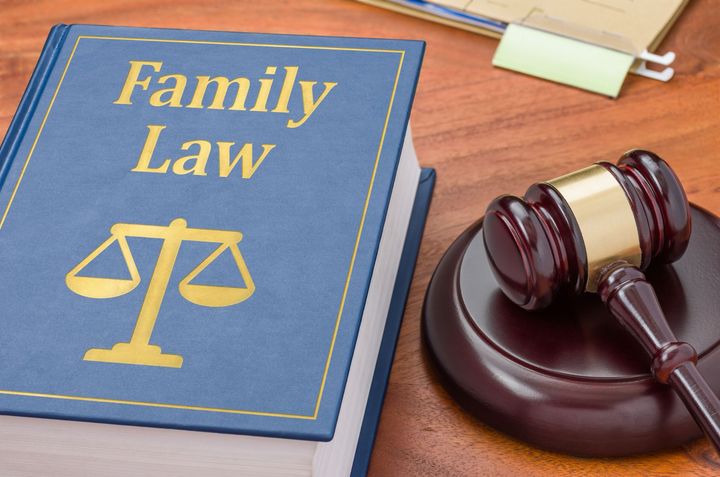Collaborative Law
Ms. Malone is trained in Collaborative Law practice. The Uniform Collaborative Law Act HB626 took effect in Hawaii on July 1, 2012 for the benefit of parties in all cases where out of court settlement, civility and privacy are paramount.
Collaborative Law is an informal dispute resolution process. The goal is to find solutions to problems that will help clients reach amicable win-win solutions with decorum and dignity.
Areas of Family Law Practice
Uncontested Cases
Mary Malone is happy to assist you with an uncontested family law case. This is an inexpensive process that can be completed in a short time.
You will have the assurance that your case is properly prepared and that you will have a full understanding of your rights and responsibilities.
Contested Cases
Every case is unique. Ms. Malone will evaluate your case in your first meeting with her and explain the law and procedure to you. Ms.
Malone will give you individualized attention and is always available to answer your questions and give you guidance.
Settlement Negotiations
Ms. Malone is able to settle many more cases than she litigates by negotiating with opposing counsel or directly to the opposing pro se party who is representing themselves without a lawyer. Settling a case will greatly reduce your costs. Ms. Malone will recommend to you how to settle your case based upon her years of experience in Family Court and the applicable law. It is always your decision whether or not to settle. You always have your right to go to trial.
Mediation
is usually required after your first court appearance on a Motion for Pre or Post Decree Relief. There are charges for mediation that the parties usually share. There are a few mediators that specialize in child custody mediation. However, a mediator does not advise you of your rights or the law. The role of the mediator is simply to help you reach an agreement. You should always consult with Mary before signing any agreement pertaining to your case. At the first hearing on your case, the Court will schedule a return hearing a few weeks later to see if the parties are able to reach an agreement in mediation. If you are not able to reach an agreement the Court must decide what to do next. You could ask for an evidentiary hearing (trial) or, if you still have unresolved issues regarding child custody and access, you could consider the appointment of a custody evaluator . The expenses of the custody evaluator are usually shared by the parties. If you can agree on the person to serve as your custody evaluator, the Court will usually agree with the appointment and schedule a return hearing after the custody evaluator submits a report to the Court. Then you must decide if you agree with the custody evaluator’s recommendations. If both parties agree with the recommendations, your case will likely settle. You may also ask for a settlement conference.
Divorce
Like many jurisdictions, Hawaii is a “no fault” state. This means that you do not need a reason (such as adultery, cruelty or abandonment) in order to get divorced other than to state that the marriage is irretrievably broken; that there is no possibility of reconciliation. It only takes one person to state that the marriage is over.
Child Custody
In both divorces with children and paternity cases, there are two areas of child custody that the Court will need to decide: physical custody and legal custody.
Physical custody has to do with where the child lives and sleeps at night. Sole physical custody means that the child lives and sleeps primarily at one parents home and visits the other parents home. Typically, the access schedule to the non custodial parent would be some or most of the non custodial parents days off from work, sharing holidays and time during major breaks from school. Shared or joint physical custody implies that the child spends a significant amount of over nights in both of the parent’s homes. The access schedule can be for equal time or less than equal time with each parent depending on the needs of the child and the parent’s work schedule.
Legal custody
has to do with the parent’s rights to make decisions on behalf of their child in areas such as medical treatment, religion, extracurricular activities and education. If one parent has sole physical and legal custody, they may have no obligation to discuss major issues with the other parent before making a decision. If the parties have joint legal custody, they must try to make decisions together. Parents are always encouraged to try to co-parent. Several social services agencies offer parenting classes which are often required in Family Court cases involving minor children. Every party in a Divorce with children and paternity cases are required to attend a presentation called “Kids First” in Family Court. This presentation covers the impact of divorce and separation on children.
Best Interest of the Child Standard
With regard to minor children in divorces and paternity cases, the Court must apply the “best interest of the child” standard. What the Court determines is the best interest of the child is not always what parents or children themselves believe is best for the minor child. Whenever possible, it is best if parents can work together to decide what is best for their children. If parents are unable to do that, the Court will decide for them. There is a growing trend in Family Court to favor joint and shared custody. All things being equal, if both parents are good parents, you should expect to share custody. There are many exceptions to this rule however. Domestic violence, substance abuse and mental illness require more carefully crafted visitation plans which might include supervised or monitored visitation. When it is justified, you may ask that any child access by the other parent be conditioned upon them getting the help they need. This may be a rare opportunity to convince the other parent to get the treatment they need in alcohol or drug abuse, domestic violence or mental health treatment and counseling.
Domestic Violence/Protective Orders
Safety is paramount when you experience domestic violence in your life. Ms. Malone can help you to develop a safety plan over the phone and in person. There are many things that you can do to protect yourself and your children. You may wish to apply for a Temporary Restraining Order against a person who has been violent to you or your children. The TRO will limit or prohibit contact by the perpetrator with you and/or your child. If you have experienced violence from your spouse or partner, mediation is not appropriate. You will be more protected with attorney negotiation.
Property Division in Divorce
Unlike many states, divorces in Hawaii are guided by partnership principles. Generally, this means that each partner is entitled to receive their capital contributions made to the partnership. Everything accumulated during the marriage (both assets and debts) are divided equitably. As we analyze your divorce, we must first get a complete inventory of all financial matters. You will be required to complete an asset and debt statement as well as an income and expense statement. We will need your pay stubs, tax returns and other documents. We may need to conduct further discovery to get a complete understanding of all financial matters. This is particularly important if you suspect that the opposing party is not completely forthcoming in their financial disclosures.
Once we believe that we have a complete financial inventory, we can calculate what is needed for child support and possibly spousal support. We must also determine whether each of the assets and debts are separate property or marital property. We may need to appraise real property and other types of property to determine if there has been an increase in value during the marriage which would require awarding a portion of the increase to the non-owner spouse.
Ms. Malone has successfully resolved property division for individual marital estates that were valued at more than twelve million dollars.
Pre Decree Relief
If there are immediate needs that must be taken care of prior to the conclusion of your case, we submit a motion for pre decree relief.
In a motion for pre decree relief, we can request temporary child custody, child access, child support, spousal support, payment of debts /other payments, exclusive use of the marital residence, advances for attorney’s fees and other relief.
Trial
If we are unable to settle your case, we prepare for trial which includes interviewing witnesses, evaluating exhibit evidence, preparing you for trial and conducting the trial. Trials are usually scheduled on the third Thursday and Friday of each month.
We will also have a pre trial conference to attempt settlement and limit the issues for trial. We can also request a settlement conference with the Judge.
Post Decree Relief
If the opposing party is not following a prior order of the Court, we can request enforcement of that order with a motion for post decree relief.
If there has been a substantial change in circumstances since a Family Court order, we can request a new and different order regarding such things as child custody, child access, child support, and spousal support.
Other Areas of Legal Services
Interstate child custody cases (UCCJEA), adoptions, legal separations, guardianships, and cases involving parental rights in child welfare cases/Child Protective Services, Child Support Enforcement Agency cases and juvenile cases.
For twenty-two years, Mary Malone has enjoyed a highly successful family law practice in all aspects of family law. Her law office is located at 69 North Church Street, Wailuku, Maui, Hawaii 96793. (808) 244-3399. She will also provide legal representation not just in Maui County but throughout the state of Hawaii including Oahu, Hawaii Island and Kauai.
For a free telephone consultation, call Mary at (808) 244-3399













